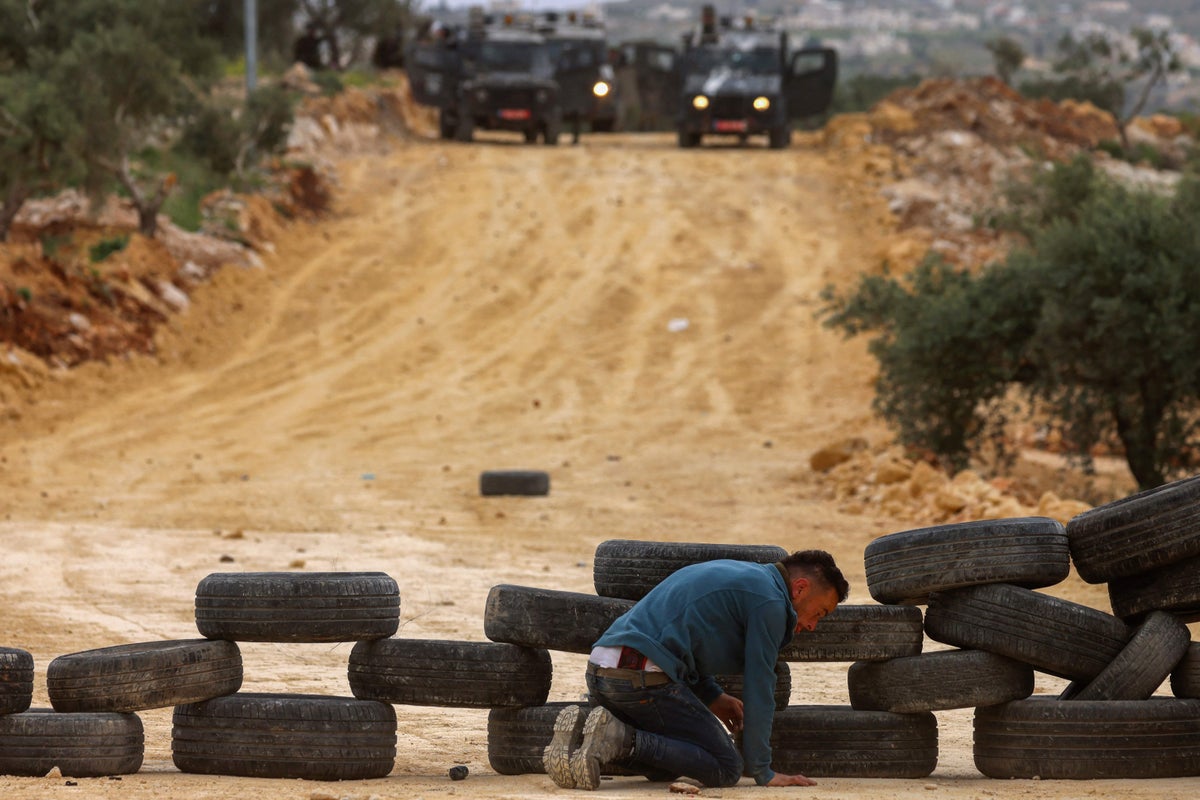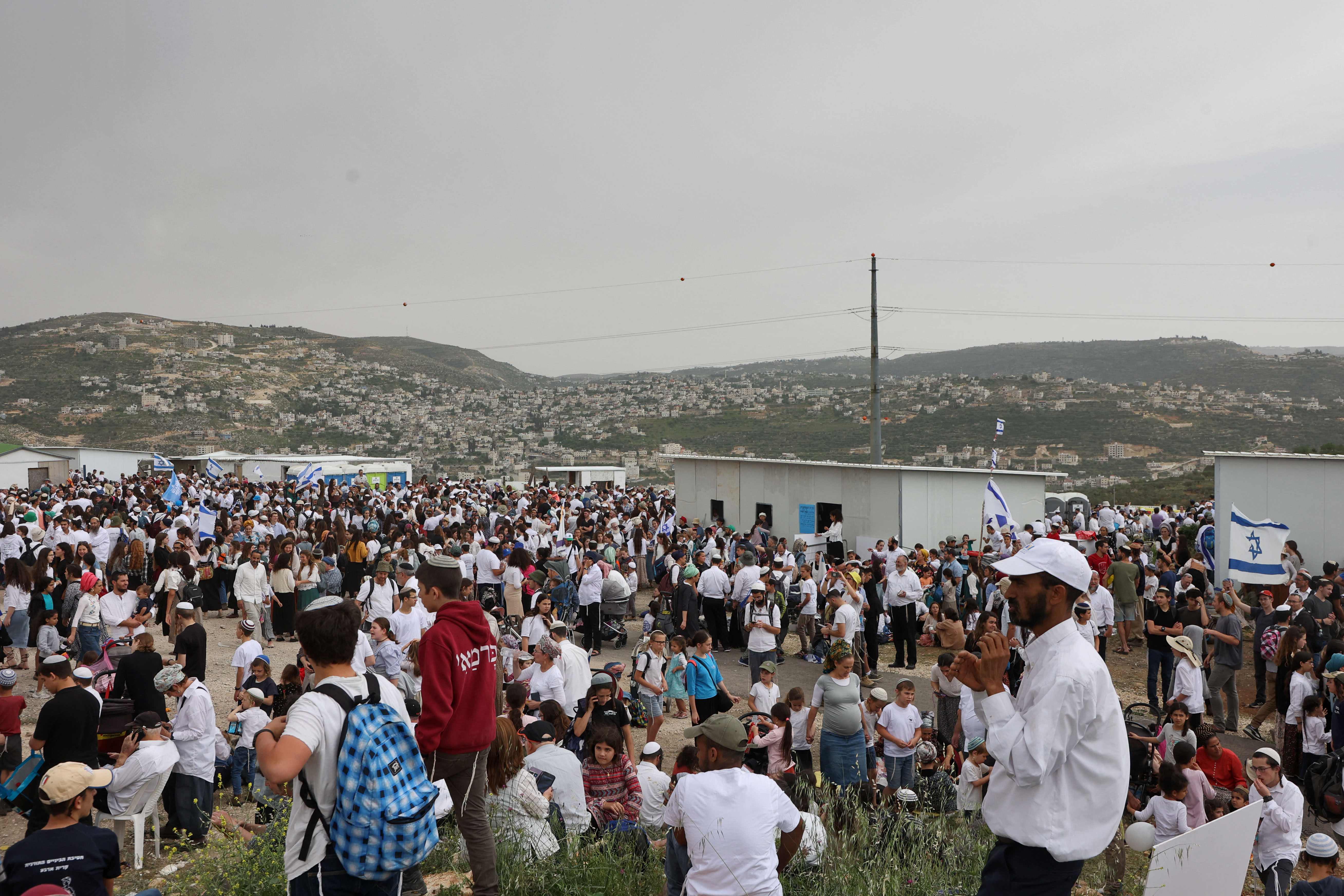
Israel’s prime minister Benjamin Netanyahu has walked back on his decision to remove defence minister Yoav Gallant over his speaking out against controversial judicial reforms. In a live press conference, Netanyahu said that Mr Gallant is staying at his post. "I decided to put the differences we had behind us," he said. "Gallant remains in his position and we will continue to work together for the security of the citizens of Israel."
In a tweet showing himself sitting next to Netanyahu, Gallant wrote: "We continue together with full strength, for Israel's security."
The decision sparked a wave of spontaneous mass protests and a general strike that threatened to paralyse the country, forcing Mr Netanyahu to pause the legislation.
Mr Netanyahu had sacked his defence minister two weeks ago over his public call to stop the government’s bitterly divisive plan to overhaul the judiciary, which he said posed a threat to Israel’s security. Mr Netanyahu never sent Mr Gallant a formal termination letter.
In recent days, Mr Gallant was seen taking part in Israeli government meetings "Even in the last few days we worked together and stood together around the clock on all fronts in the face of the security challenges," Mr Netanyahu said.
Days after Mr Netanyahu announced Mr Gallant's firing, an Israeli police raid at Jerusalem's most sensitive holy site triggered rocket fire at Israel on multiple fronts. The raid on the Al-Aqsa Mosque compound — the third holiest shrine in Islam that is also the most sacred to Jews — rockets were fired on northern Israel from Lebanon, Syria and the Hamas-controlled Gaza Strip.
Israel responded with airstrikes and artillery fire at rocket launch sites and accused Hamas and Palestinian militant groups of being behind the attacks.

On Monday, thousands of Israelis led by at least seven Cabinet ministers marched Monday to an evacuated West Bank settlement, in a defiant signal that Israel’s most right-wing government in history is determined to accelerate settlement building on occupied lands despite international opposition. The march threatened to exacerbate already-high tensions, given the recent spate of violence. In a fresh incident Israeli forces had killed a 15-year-old Palestinian boy during a raid in the occupied West Bank and a 48-year-old British-Israeli woman died of wounds sustained in an attack last week that killed two of her daughters.
Monday’s march took place in the northern West Bank — the scene of repeated violence in recent months. Thousands of Israeli police and army forces were reportedly deployed to secure the march.
National security minister Itamar Ben-Gvir and finance minister Bezalel Smotrich – both West Bank settlers – marched to Eviatar, an unauthorised settlement outpost in northern West Bank that was evacuated by the previous Israeli government in 2021.
At least 92 Palestinians have been killed by Israeli forces so far this year, with at least half of them said by Israel to be affiliated with militant groups. Palestinian attacks have killed at least 20 people, including one soldier so far this year.

The events have shaken up the popularity of Mr Netanyahu’s hardline government, which has been dubbed as the most religious and ultranationalist government in Israel‘s history.
Recent polls showed 60 per cent of respondents said they do not trust the government to deal with the current wave of violence and just 27 per cent of respondents said they “rely on the government to handle the wave of terror”.
In his address on Monday, Mr Netanyahu attacked said that the situation was now under “our watch, it’s our responsibility. It’s my responsibility”.
“You know me. I don’t act rashly. I act resolutely and determinedly and above all I act responsibly,” said Mr Netanyahu. “I tell you tonight, people of Israel, we will repel these threats and we will defeat our enemies. We’ve done so in the past and we’ll do so again.”
Associated Press contrinbuted to this report







